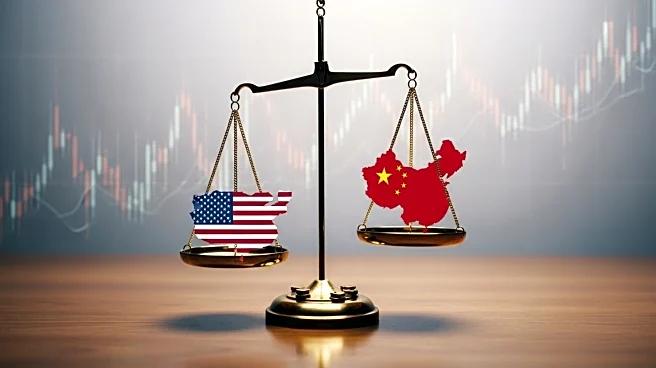What's Happening?
Renewed trade tensions between the United States and China are casting a shadow over the recent rally in Chinese stock markets. The CSI 300 and Hang Seng Index had seen significant gains earlier this year, driven by expectations of government stimulus and foreign capital inflows. However, the resurgence of tariff rhetoric from Washington, particularly concerning Beijing's rare earth export controls, has raised fears of another cycle of trade confrontations. Analysts warn that the optimism in the markets could quickly dissipate, as both indexes experienced a loss of over 2% recently. The anticipated meeting between President Trump and President Xi Jinping, which had fueled hopes of a trade truce, now seems unlikely, further exacerbating market uncertainties.
Why It's Important?
The escalating trade tensions between the U.S. and China have significant implications for global economic stability. If unresolved, these tensions could lead to a deep recession, affecting not only the U.S. and Chinese economies but also the broader global market. The aggressive positioning in equities and credit markets, which had been set for positive performance, now faces the risk of stagnation or decline. The potential imposition of new tariffs by the U.S. could disrupt international trade flows, impacting businesses and investors worldwide. The situation underscores the fragile nature of geopolitical relations and their direct impact on economic conditions.
What's Next?
The next few weeks are expected to be challenging for global markets as stakeholders await further developments in U.S.-China trade relations. The possibility of new tariffs and the absence of a diplomatic summit between the two nations could lead to increased volatility in stock markets. Investors and businesses will be closely monitoring any policy announcements or shifts in trade strategies from both governments. The situation may prompt calls for renewed negotiations to prevent further economic fallout and stabilize market conditions.









